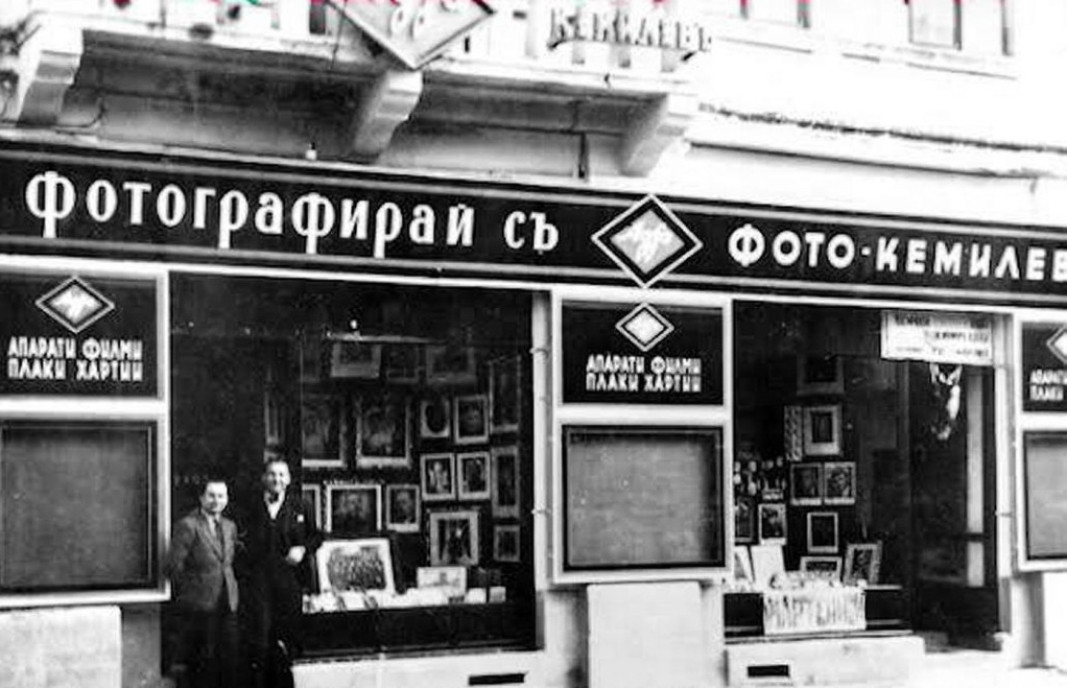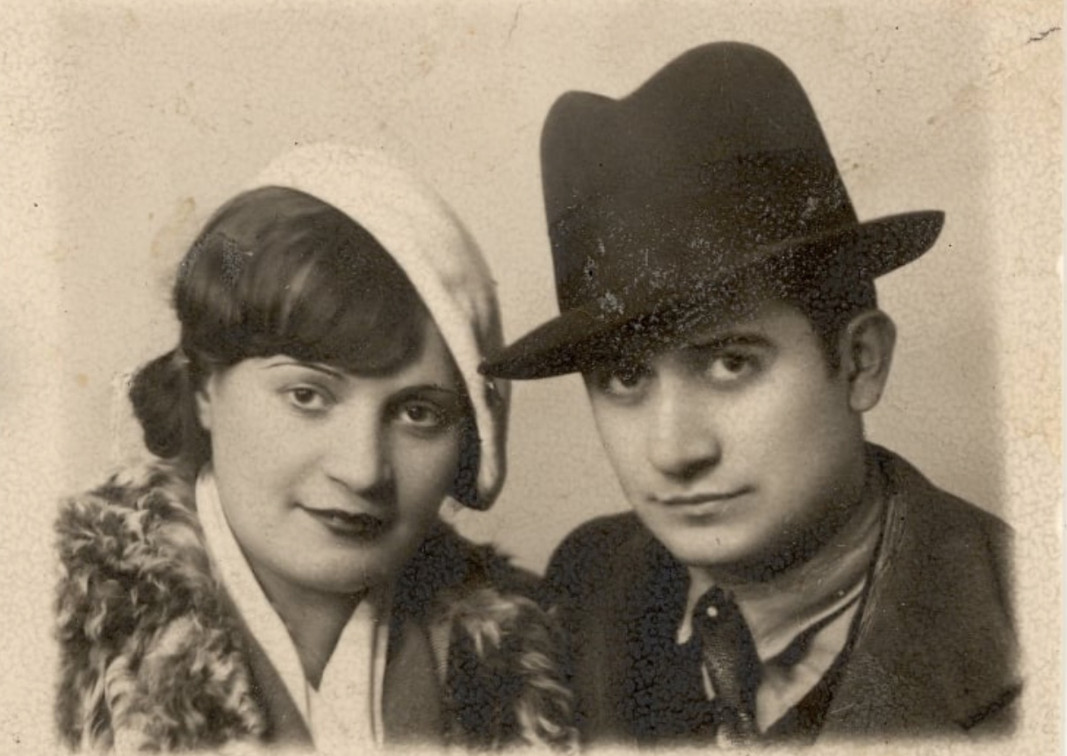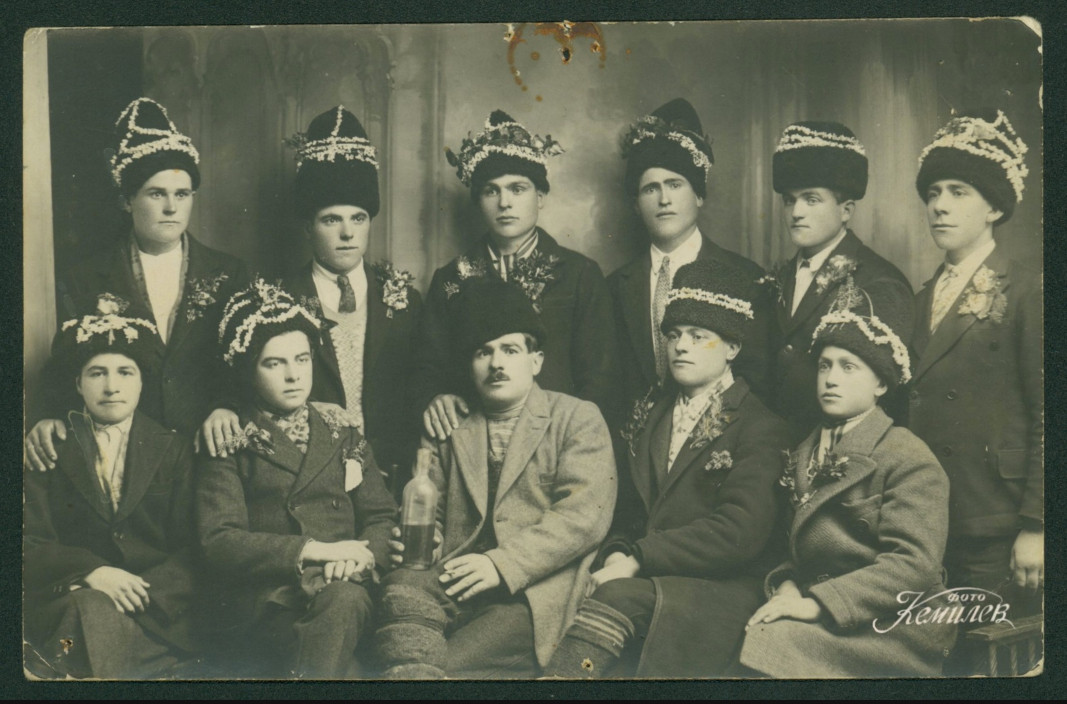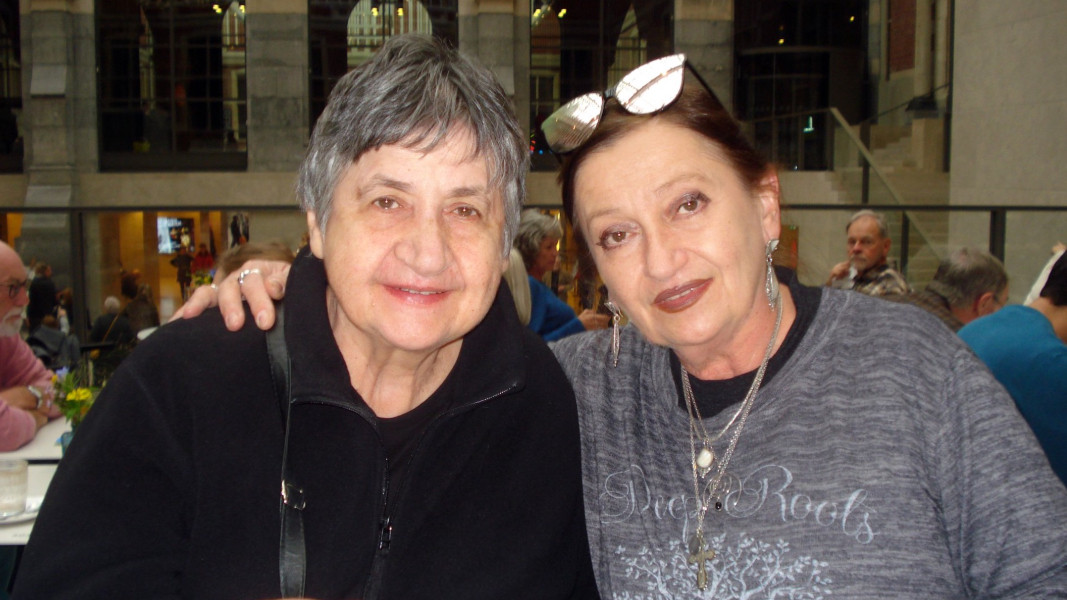 7
7
“Our entire family, we would all go to Photo Kemilev Studio, a wonderful artist photographer! The window display showed numerous portraits of musicians, actors, painters, writers… a whole gallery.”
Mrs. Dimi Dimcheva, daughter of cellist Nikola Dimchev, whose name was prominent on the posters of the Sofia Philharmonic in the mid-20th century, left a highly emotional message on a piece of paper. Though sparing, her words were something familiar to the people then living in Sofia. As was often the case during the years of communist rule, the name of the much-loved and respected photographer was made to vanish in one fell swoop.

“Our father Todor Angelov Kemilev was born in 1910 in Dobrich,” says ceramic artist Joana Kemileva. “A name in Bulgarian photography who, and I say this with much pain and grief, is sunk into oblivion, and his work – erased due to the circumstances of our lives. His brother had a degree in pharmacy, his sister – in medicine, while he himself was an apprentice with an Armenian – Sigassyan, from whom he acquired the technical skills of photography. And when out grandfather saw the love he had of the profession, the two went to Vienna where he bought a camera – the only item we managed to rescue from the full confiscation and destruction of our father’s work and property.”
Ambitious, innovative, avant-garde, at the age of only 17 Todor Kemilev opened a studio in the town where he was born. By that time he had already painted an icon of St. Marina in the local church St. George, and had started to make artistic photo portraits. In 1940 he filmed the return of Southern Dobruja to Bulgaria using a movie camera, and three years later he filmed the funeral of Tsar Boris III.

Married to Tsvetana Stambolova from Sofia, in 1942 he came to live in Sofia where he opened his studio Photo Kemilov opposite the building of the Italian embassy, at 12 Tsar Osvoboditel Boulevard. He quickly made a name for himself, with politicians, artists and members of the public coming to have their photos taken, putting their trust in his skill of bringing out what makes us human and putting it down on photographic paper for posterity.
“He treated everyone as a human being – with the same attention, affection and respect,” says Todor Kemilev’s other daughter Antoaneta who inherited his profession. “He would find a kind word for each of the clients. For example, he would say to a couple coming in for a family portrait: Remember how you met, and conjure up a fond memory. His words brought a smile to people’s faces, and only after treating people kindly would he take the photograph.”

Todor Kemilev is one of eight photographers to have been bestowed the title “artist photographer”, allowed to keep their private practice after the communist coup on the 9 September, 1944 and the subsequent nationalization. In 1950 he moved his studio from “the central and annoying location on Tsar Osvoboditel Boulevard”, as Joana Kemileva puts it, to a small street – Benkovski. Sitting opposite the stage door of Bulgaria Hall, a great many of his clients who would come to the studio were from the artistic elite.

Alongside the names of renowned photographers like Petar Papakochev, Emil Rashev, Stanko Jishev, Minko and Pencho Balkanski he was well respected until the last days of his life. Todor Kemilev died in 1969, true to his calling until his very last breath. His elder daughter Antoaneta inherited Photo Kemilev and it existed for four more years, until one day, the young girl decided to take a fateful step, which, in an instant, was to erase the memory of the much-loved and respected professional man – Todor Kemilev.

In 1973 Antoaneta Kemileva emigrated from Bulgaria and was immediately branded “non-returner”. She was sentenced to three years of imprisonment, a fine, and everything the family owned was confiscated – the apartment along with the studio, the equipment, the photo archives and the negatives. Her family, stigmatized and humiliated, were interrogated, persecuted, and subject to restrictions. And even though, after the end of the communist regime on 10 November 1989, the family set out to find Todor Kemilev’s visual legacy spanning 42 years, they discovered no trace of it.
“Even though it has been 50 years it is not easy for me to talk about it. At the time I had not though out all the consequences,” says Antoaneta Kemileva from Canada where she settled after managing to escape from Bulgaria. Together with her sister Joana, she is now putting her best effort to vindicate the name and the work of photographer Todor Kemilev. They have already organized two exhibitions – in Sofia and Dobrich but are hoping to add to the memory of their father from the family archives of several generations of Bulgarians.

“We are asking the people who have photographs stamped Photo Kemilev in their family albums to call us so we can scan them,” says Joana Kemileva. “Our father did not deserve such a fate – now it is as if he has never worked, never existed, but that is true of so many other people whose lives were broken for reasons beyond their control. And now that we are advanced in years, we want to make this gesture to the memory of Todor Kemilev because his name occupies a significant place in the history of Bulgarian photography and it must not be forgotten or neglected.”
Translated from the Bulgarian and posted by Milena Daynova
Photos: courtesy of Antoaneta and Joana Kemileva
Vasil Levski is a Bulgarian revolutionary and national hero who fought for the Liberation of Bulgaria from the Ottoman Empire. He is an ideologist, founder and organizer of the Internal Revolutionary Organization, for which grateful..
Bulgarian Patriarch Daniil will celebrate the first liturgy in London for the consecration of the new church of the Bulgarian Orthodox community in the British capital - the church of Saint Ivan Rilski. T he church is part of the Bulgarian Embassy..
Every year on February 10, the feast of St. Haralambos , Bishop of Magnesia, is celebrated with special solemnity in a small Bulgarian town in the northernmost part of the country's Black Sea coast . For Shabla and its residents, this is the..
Vasil Levski is a Bulgarian revolutionary and national hero who fought for the Liberation of Bulgaria from the Ottoman Empire. He is an..

+359 2 9336 661
